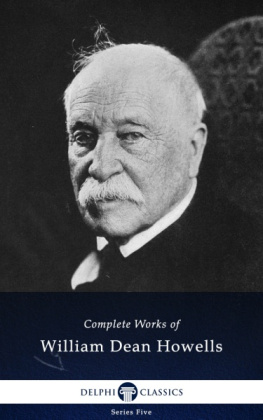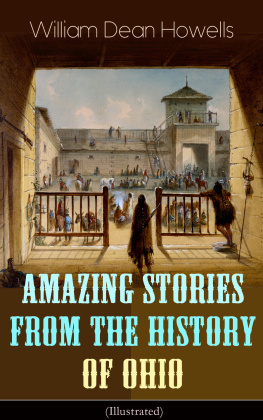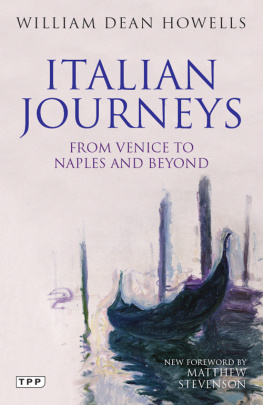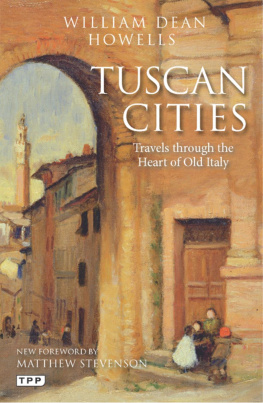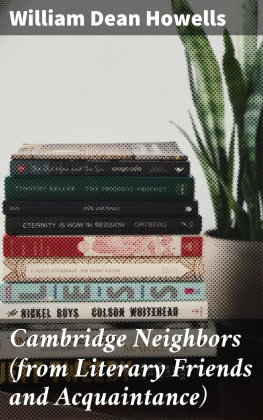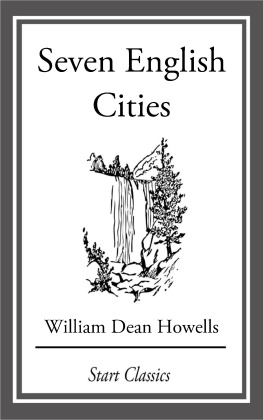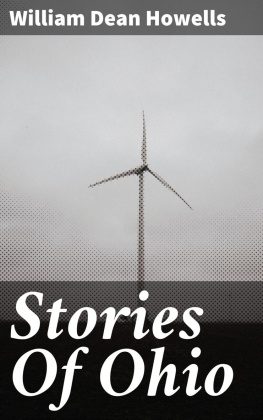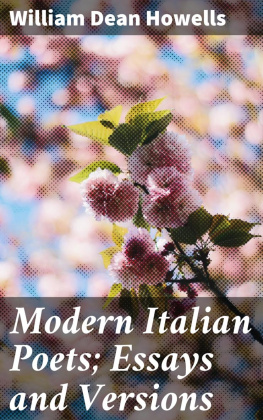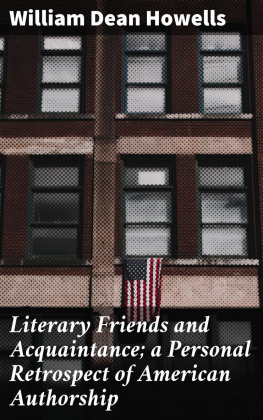I
METEOROLOGICAL EMOTIONS
Whoever carries a mental kodak with him (as I suspect I was in the habit of doing long before I knew it) must be aware of the uncertain value of the different exposures. This can be determined only by the process of developing, which requires a dark room and other apparatus not always at hand; and so much depends upon the process that it might be well if it could always be left to some one who makes a specialty of it, as in the case of the real amateur photographer. Then one's faulty impressions might be so treated as to yield a pictorial result of interest, or frankly thrown away if they showed hopeless to the instructed eye. Otherwise, one must do one's own developing, and trust the result, whatever it is, to the imaginative kindness of the reader, who will surely, if he is the right sort of reader, be able to sharpen the blurred details, to soften the harsh lights, and blend the shadows in a subordination giving due relief to the best meaning of the print. This is what I fancy myself to be doing now, and if any one shall say that my little pictures are superficial, I shall not be able to gainsay him. I can only answer that most pictures represent the surfaces of things; but at the same time I can fully share the disappointment of those who would prefer some such result as the employment of the Roentgen rays would have given, if applied to certain aspects of the London world.
Of a world so vast, only small parts can be known to a life-long dweller. To the sojourner scarcely more will vouchsafe itself than to the passing stranger, and it is chiefly to home-keeping folk who have never broken their ignorance of London that one can venture to speak with confidence from the cumulative misgiving which seems to sum the impressions of many sojourns of differing lengths and dates. One could have used the authority of a profound observer after the first few days in 1861 and 1865, but the experience of weeks stretching to months in 1882 and 1883, clouded rather than cleared the air through which one earliest saw one's London; and the successive pauses in 1894 and 1897, with the longest and latest stays in 1904, have but served to confirm one in the diffident inconclusion on all important points to which I hope the pages following will bear witness.
What appears to be a fact, fixed and absolute amid a shimmer of self-question, is that any one coming to London in the beginning of April, after devious delays in the South and West of England, is destined to have printed upon his mental films a succession of meteorological changes quite past computation. Yet if one were as willing to be honest as one is willing to be graphic, one would allow that probably the weather on the other side of the Atlantic was then behaving with quite as swift and reckless caprice. The difference is that at home, having one's proper business, one leaves the weather to look after its own affairs in its own way; but being cast upon the necessary idleness of sojourn abroad, one becomes critical, becomes censorious. If I were to be a little honester still, I should confess that I do not know of any place where the month of April can be meaner, more poison, upon occasion, than in New York. Of course it has its moments of relenting, of showing that warm, soft, winning phase which is the reverse of its obverse shrewishness, when the heart melts to it in a grateful tenderness for the wide, high, blue sky, the flood of white light, the joy of the flocking birds, and the transport of the buds which you can all but hear bursting in an eager rapture. It is a sudden glut of delight, a great, wholesale emotion of pure joy, filling the soul to overflowing, which the more scrupulously adjusted meteorology of England is incapable of at least so instantly imparting. Our weather is of public largeness and universal application, and is perhaps rather for the greatest good of the greatest number; admirable for the seed-time and harvest, and for the growing crops in the seasons between. The English weather is of a more private quality, and apportioned to the personal preference, or the personal endurance. It is as if it were influenced by the same genius which operates the whole of English life, and allows each to identify himself as the object of specific care, irrespective of the interests of the mass. This may be a little too fanciful, and I do not insist that it is scientific or even sociological. Yet I think the reader who rejects it might do worse than agree with me that the first impression of a foreign country visited or revisited is stamped in a sense of the weather and the season.
Nothing made me so much at home in England as reading, one day, that there was a lower or a higher pressure in a part of Scotland, just as I might have read of a lower or a higher pressure in the region of the lakes. Now, I said to myself, we shall have something like real weather, the weather that is worth telegraphing ahead, and is going to be decisively this or that. But I could not see that the weather following differed from the weather we had been having. It was the same small, individual weather, offered as it were in samples of warm, cold, damp and dry, but mostly cold and damp, especially in-doors. The day often opened gray and cloudy, but by-and-by you found that the sun was unobtrusively shining; then it rained, and there was rather a bitter wind; but presently it was sunny again, and you felt secure of the spring, for the birds were singing: the birds of literature, the lark, the golden-billed blackbird, the true robin, and the various finches; and round and over all the rooks were calling like voices in a dream. Full of this certainty of spring you went in-doors, and found it winter.
If you can keep out-of-doors in England you are very well, and that is why the English, who have been philosophizing their climate for a thousand and some odd years, keep out-of-doors so much. When they go indoors they take all the outer air they can with them, instinctively realizing that they will be more comfortable with it than in the atmosphere awaiting them. If their houses could be built reversible, so as to be turned inside out in some weathers, one would be very comfortable in them. Lowell used whimsically to hold that the English rain did not wet you, and he might have argued that the English cold would not chill you if only you stayed out-of-doors in it.
Why will not travellers be honest with foreign countries? Is it because they think they may some day come back? For my part, I am going to be heroic, and say that the in-doors cold in England is constant suffering to the American born. It is not that there is no sizzling or crackling radiator, no tropic-breathing register; but that the grate in most of the houses that the traveler sees, the public-houses namely, seems to have shrunken to a most sordid meanness of size. In Exeter, for example, where there is such a beautiful cathedral, one found a bedroom grate of the capacity of a quart pot, and the heating capabilities of a glowworm. I might say the same of the Plymouth grate, but not quite the same of the grates of Bath or Southampton; if I pause before arriving at the grate of London, it is because daring must stop somewhere. I think it is probable that the American, if he stayed long enough, would heed the injunction to suffer and be strong from the cold, as the Englishman has so largely done, but I am not sure. At one point of my devious progress to the capital I met an Englishman who had spent ten years in Canada, and who constrained me to a mild deprecation by the wrath with which he denounced the in-doors cold he had found everywhere at home. He said that England was a hundred, five hundred, years behind in such matters; and I could not deny that, even when cowering over the quart pot to warm the hands and face, one was aware of a gelid mediaeval back behind one. To be warm all round in an English house is a thing impossible, at least to the traveller, who finds the natives living in what seems to him a whorl of draughts. In entering his own room he is apt to find the window has been put down, but this is not merely to let in some of the outside warmth; it is also to make a current of air to the open door. Even if the window has not been put down, it has always so much play in its frame, to allow for swelling from the damp, that in anything like dry weather the cold whistles round it, and you do not know which way to turn your mediaeval back.


